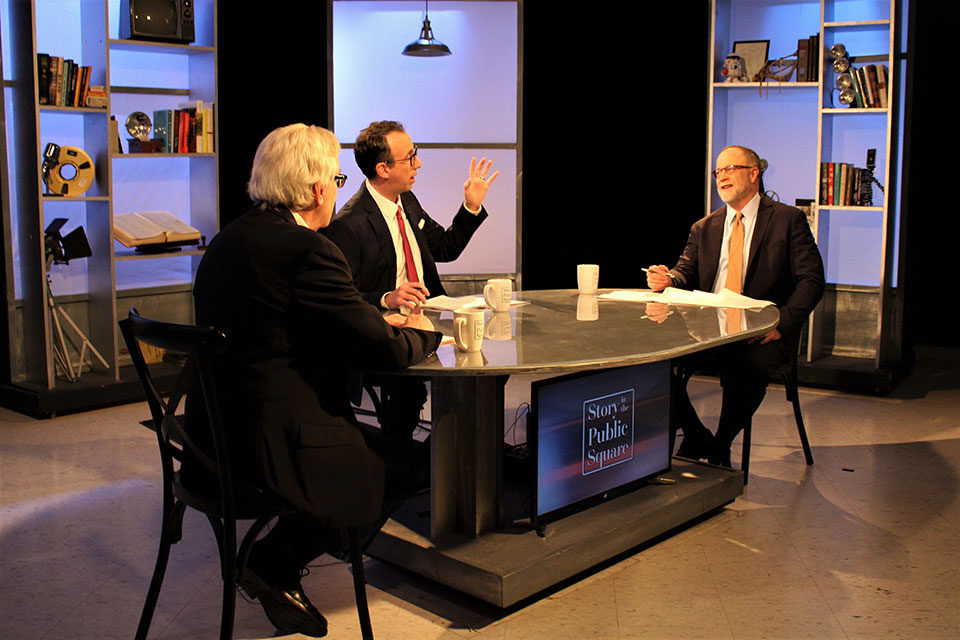Pell Center names 2019 story of the year

The fracturing of America’s public narrative has been named the 2019 story of the year by the Pell Center for International Relations and Public Policy. The topic was explored in depth in this week’s episode of the nationally syndicated PBS television series and podcast, “Story in the Public Square.”
Show co-hosts Jim Ludes, Pell Center executive director, and G. Wayne Miller, senior staff writer at the Providence Journal, agreed that the 2019 story of the year is not a single story, but a greater phenomenon. The two hosts dive into the issue when they interview Michael Kennedy, professor at Brown University’s Watson Institute and author of “Globalizing Knowledge: Intellectuals, Universities and Publics in Transformation.”
“Story in the Public Square” airs on Rhode Island PBS in Rhode Island and southern Massachusetts on Sundays at 11 a.m. and is rebroadcast Thursdays at 7:30 p.m. An audio version of the program airs Saturdays at 8:30 a.m. and 6:30 p.m., and Sundays at 4:30 a.m. and 11:30 p.m. on SiriusXM’s popular P.O.T.U.S. channel 124. “Story in the Public Square” is a partnership between the Pell Center and the Providence Journal.
The broad outlines of the fracturing of America’s public narrative have been visible for decades, Ludes said. In the aftermath of World War II, and at the height of newspaper circulation in the United States, there were three nightly outlets for national broadcast news. Three respected, elder journalists shaped the public’s consciousness even while they did their best to remain dispassionate.
“Today, we get our television news from entertainment companies, while many of us spend more time engaging with news on social media,” Ludes said. “As a result, there is no longer a national narrative to help guide policy makers. In addition, an agreed-upon set of facts has become increasingly more difficult to establish. Look no further than the president’s impeachment defense, which relies upon a set of talking points the president’s own former senior advisor on Russia warned – in sworn testimony before Congress – was nothing more than Russian disinformation.”
Kennedy has studied the sociology of public knowledge, global transformations and cultural politics, focusing most recently on social movements, universities and solidarity within and across nations. He describes the vastly conflicting narratives on impeachment that dominate the American political sphere today as “a critical time for our country. The old stories we used to tell about what sociology is have changed in part because the status of truth has changed.”
In the absence of an “American” narrative we can all accept, the public retreats into partisan positions ready to do battle with – or worse, ostracize – anyone who sees the world differently, Miller said. Self-government in a republic like ours requires deliberation and debate – even passionate debate. But the success of self-government requires agreement about basic facts and a belief that the truth is knowable through reason.
“The prevalence of social media as a means for public debate only heightens the tensions between individuals in a divided society,” Miller said. “As a rule, we digitally yell at each other, rather than listening and engaging.”
Since 2013, the Pell Center has announced the story of the year, identifying a public narrative that has had the biggest impact on public affairs in the previous 12 months.

